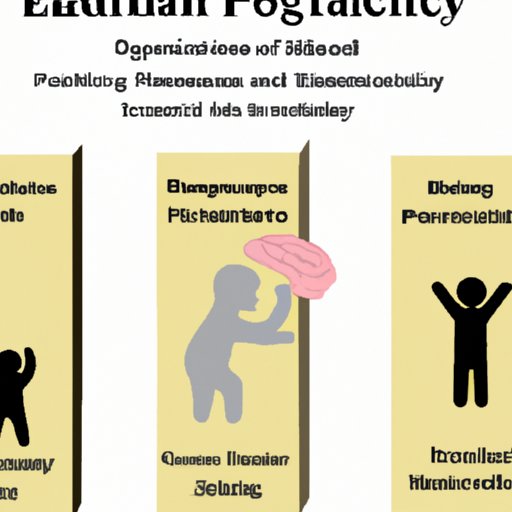Introduction
The science of human development is a multidisciplinary field that seeks to understand how humans grow and change over the course of their lives. It examines the physical, cognitive, social, and emotional aspects of growth and development and investigates the complex interactions between nature and nurture that influence the development of an individual.

Exploring the Physical and Cognitive Development of Humans
Physical development refers to the changes a person experiences in their body as they grow older. These changes include growth in height, weight, and muscle mass, as well as changes in physical abilities such as strength, coordination, and agility. The science of human development seeks to understand how these physical changes occur and the ways in which they are influenced by genetics, environment, nutrition, and other factors.
Cognitive development is another important area of study in the science of human development. It focuses on understanding how humans learn and process information, as well as how they think, reason, remember, and make decisions. Researchers have identified several stages of cognitive development that occur throughout a person’s life, and they seek to understand the influences that impact each stage of development.

Examining the Social and Emotional Aspects of Human Development
Social development is another key aspect of human development. It involves understanding how people interact with one another and form relationships, as well as how they develop a sense of self-identity. It also examines how culture, gender, and other social factors influence individuals’ behavior and beliefs.
Emotional development is also an important part of human development. This involves understanding how people experience and express emotion, as well as how emotions can influence behavior. Researchers have identified several stages of emotional development that occur throughout a person’s life, and they seek to understand the role of genetics, environment, and other factors in shaping these stages.
Investigating the Role of Neuroscience in Human Development
Neuroscience is another important field of study in the science of human development. It focuses on understanding the biological processes that underlie behavior and cognition. Neuroscientists explore how the brain develops and how its structure and function influence behavior. They also investigate the effects of genetics, environment, and other factors on brain development.
One example of this research is a study conducted by researchers at the University of Michigan, which used MRI scans to examine how the brains of children from different family backgrounds develop differently. The researchers found that the brains of children from lower-income families had smaller overall brain volumes and less activity in areas related to language and executive function than those of children from higher-income families. This suggests that environmental factors such as poverty can have an impact on brain development.

Understanding the Interplay Between Nature and Nurture in Human Development
Nature vs. nurture is a long-standing debate in the science of human development. It questions whether our characteristics and behaviors are determined by our genetics (nature) or our environment (nurture). Research has shown that both nature and nurture play a role in determining who we are, and that the interaction between the two is complex and dynamic.
The science of human development also seeks to understand the role of technology and media in shaping the development of individuals. Technology and media can provide access to new information, experiences, and opportunities, but they can also have negative impacts on development if not used wisely. For example, a study published in the journal Pediatrics found that children who spent more than two hours per day on screens had poorer wellbeing and cognitive performance than those who spent less time on screens.
Conclusion
In conclusion, the science of human development seeks to understand how humans grow and change over the course of their lives. It investigates the physical, cognitive, social, and emotional development of humans, as well as the role of genetics, environment, and other factors in influencing these aspects of development. It also examines the interplay between nature and nurture, and the impact of technology and media on human development. By better understanding these factors, researchers can help individuals reach their full potential.
(Note: Is this article not meeting your expectations? Do you have knowledge or insights to share? Unlock new opportunities and expand your reach by joining our authors team. Click Registration to join us and share your expertise with our readers.)
